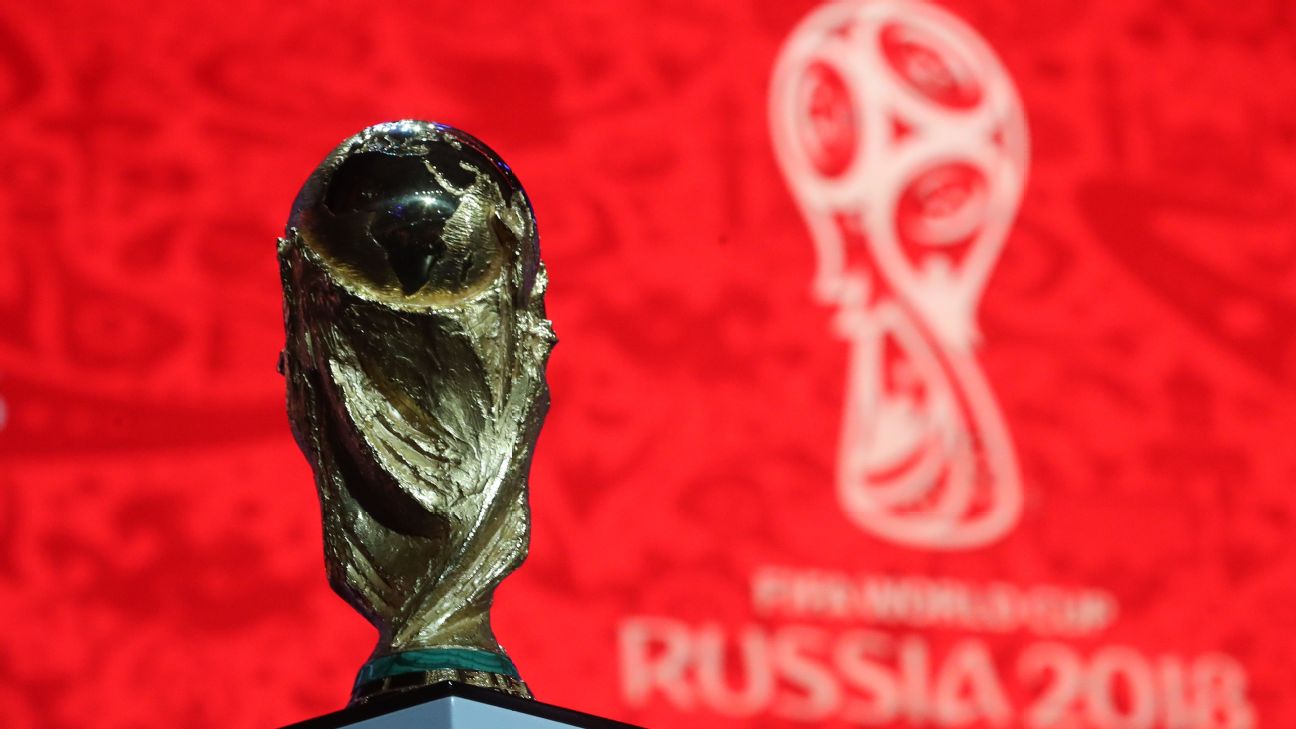Syrian human rights watchers signed a collective statement calling on the international community to boycott the upcoming FIFA World Cup, which is scheduled to be held in Russia this summer, amid the military’s siege of Eastern Ghouta in Syria, a densely populated area near Damascus.
The appeal was signed by 22 organizations, many with operations in Syria, and addressed the leaders of the United States, France, Germany and Britain.
"We are calling on you as a political leader to threaten to boycott the 2018 FIFA World Cup in June hosted by Russia," read in the joint statement that was intended to be a “clear signal” for Russia and force President Vladimir Putin to stop bombing the country.
The impetus for such an appeal was a week-long intense bombardment of the Eastern Ghouta in mid-February, which was under the control of opposition forces and Syria-based jihadist groups like Jays Al-Islam and Jabhat Fateh al-Sham (JFS), formally known as Jabhat an-Nusra, as well as an alliance of Hayat Tahrir al-Sham, since 2011.
According to recent UN estimates, about a third of Eastern Ghouta’s population at around 400,000 is internally displaced, while 272,500 inhabitants are in need of humanitarian assistance.
Despite the fact that Russia, along with Iran and Turkey, included Ghouta in the list of de-escalation zones in Syria, human rights activists pointed the finger at the Kremlin, who in their view is guilty in backing the Syrian government’s move to bomb the area.
Western powers have not been silent on the military moves. The U.S. State Department has accused Russia of military support to Damascus, while Germany’s Chancellor Angela Merkel in her speech to the German parliament after the air strikes urged Damascus and its wartime allies, namely Russia and Iran, to put an end to what she described as a “massacre” in Syria.
The Kremlin denies any involvement in air strikes on Syria’s Eastern Ghouta, calling them “groundless accusations.”
“They are not backed up with any specific information. We do not agree with them,” Kremlin spokesman Dmitry Peskov said.
A new wave of talk about boycotting the World Cup arose after the poisoning of a former GRU military intelligence agency officer Sergei Skripal in the U.K.
The British government accuses the Kremlin of carrying out a nerve agent attack on the convicted MI6 spy and his daughter. British Foreign Secretary Boris Johnson threatened Russia with a boycott of the World Cup, and the following day Prime Minister Theresa May also stressed that a boycott may be considered as one of the possible measures against Russia if it is proven that Moscow was involved in the poisoning.
Although it is known that officials and representatives of the royal family will not attend the World Cup matches this summer, British Football Association argues against boycotting the World Cup since they are categorically against the politicization the sport.
The frustration with Russia hosting the World Cup does not end with western Europe.
Due to the flare up of tensions over Crimea, Ukrainian President Petro Poroshenko has supported the idea of boycotting the World Cup as a kind of effective sanctions.
“As long as there are Russian troops in Ukraine I think a World Cup in that country is unthinkable,” said Poroshenko.







 Armenian sappers commenced on Monday mine-clearance operations in the territories adjacent to the Saint Mary Church in village of Voskepar (Armenia...
Armenian sappers commenced on Monday mine-clearance operations in the territories adjacent to the Saint Mary Church in village of Voskepar (Armenia...
 The Mine Action Agency of Azerbaijan (ANAMA) reported on Thursday the discovery of a significant amount of explosives in the Khojavand district of ...
The Mine Action Agency of Azerbaijan (ANAMA) reported on Thursday the discovery of a significant amount of explosives in the Khojavand district of ...
 Iran’s Foreign Minister, Hossein Amir-Abdollahian, has labeled a foiled Israeli drone attack in certain parts of the country as a "failure" for Isr...
Iran’s Foreign Minister, Hossein Amir-Abdollahian, has labeled a foiled Israeli drone attack in certain parts of the country as a "failure" for Isr...
 Iran has refuted reports of alleged damage to Shimon Peres Negev Nuclear Research Centre located southeast of Dimona, Israel, during the recent air...
Iran has refuted reports of alleged damage to Shimon Peres Negev Nuclear Research Centre located southeast of Dimona, Israel, during the recent air...



